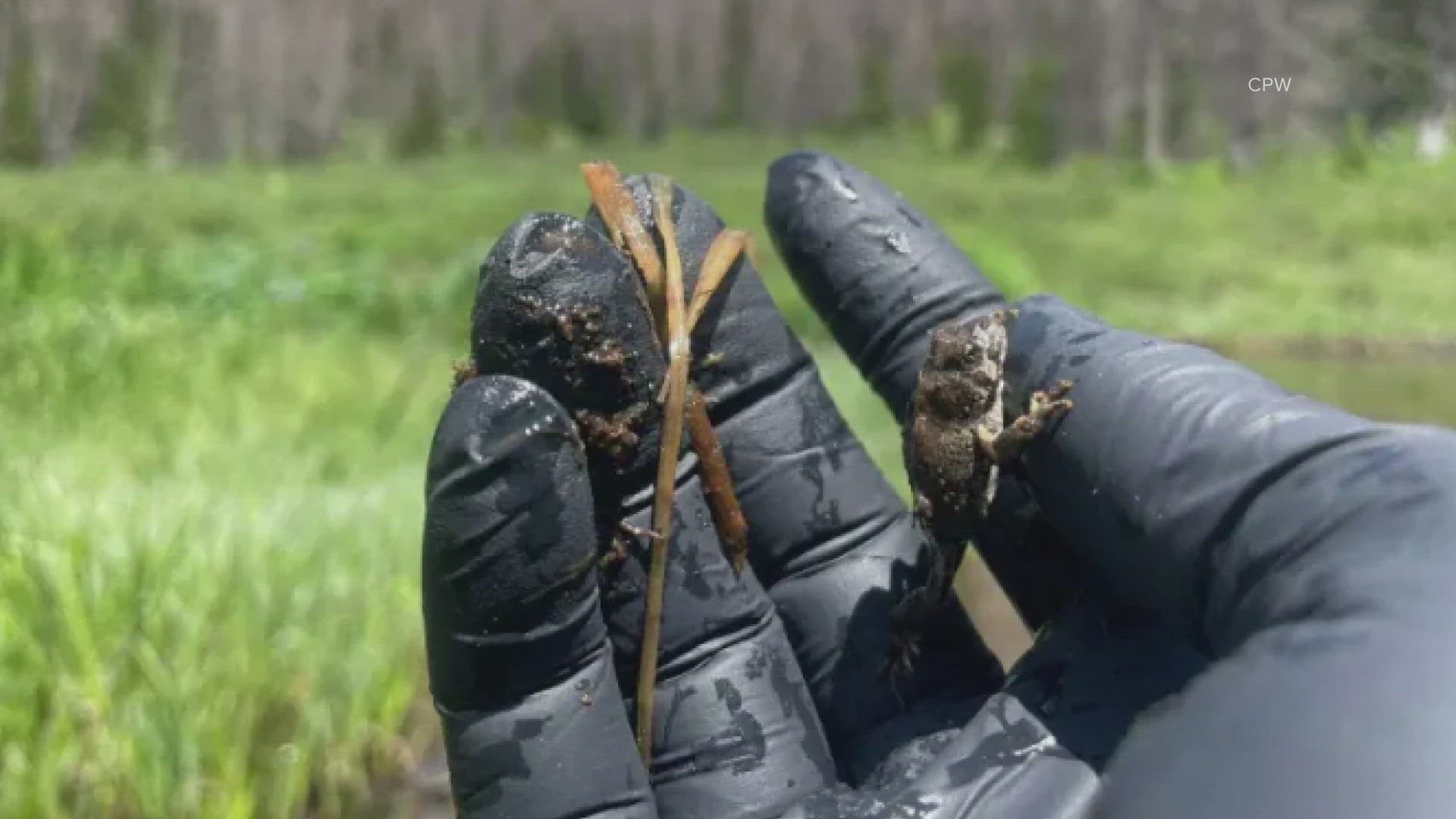PITKIN, Colo. — Colorado Parks and Wildlife announced Tuesday afternoon that a CPW team found wild boreal toad tadpoles at a reintroduction site in Gunnison County.
CPW said the discovery is "game-changing" for the future of boreal toad conservation.
Daniel Cammack and the team of CPW native aquatic species biologists have made the familiar trek up to the wetlands at 11,500 feet for seven years in an effort to boost Colorado's boreal toad population. They didn't expect to see wild tadpoles.
“This is a really special day. We have been reintroducing toads at this site since 2018, and this is the first time that we have observed wild reproduction occurring,” Cammack said. “It’s a really big deal.”
The discovery is big because the toad is listed as a state endangered species in Colorado. The animal was once common in montane habitats in the southern Rocky Mountains, but the boreal toad has experience a significant decline in population over the past two decades.
The population decline appears to be related to habitat loss and infection by the chytrid fungus. The fungus can infect most of the world's 7,000 amphibian species. It has been linked to other major population declines and extinctions globally.
The site near Pitkin in Gunnison County previously didn't have the boreal toads. But in 2013, CPW identified the site as a good potential habitat for translocation of the animal.
In 2017, CPW stocked the first 600 boreal toads at the site to be used as sentinels for chytrid fungus. Since then, CPW estimates they have stocked 20,000 tadpoles at the site. Many originated as eggs collected from wild populations in remote backcountry areas and were transported to be raised under CPW in Alamosa.
An additional 570 tadpoles raised by the Denver Zoo Conservation Alliance were added to the site in 2022.
Female boreal toads are not reproductively mature until they're about 6 years old. This gives Cammack and CPW confidence the site will continue to produce more tadpoles in the future.
“For years, we have been watching multiple age classes thrive at this site, so we had high hopes this was going to become a self-sustaining breeding population and a successful translocation,” Cammack said. “This is the first year we’ve seen breeding occurring in this wetland, and it is evidence of that success."
If the tadpoles continue to grow into toadlets later this summer and then grow into adult toads further down the line, the translocation site will become the second in Colorado to have natural breeding occur. The first translocation site is near Cameron Pass in northern Colorado.

